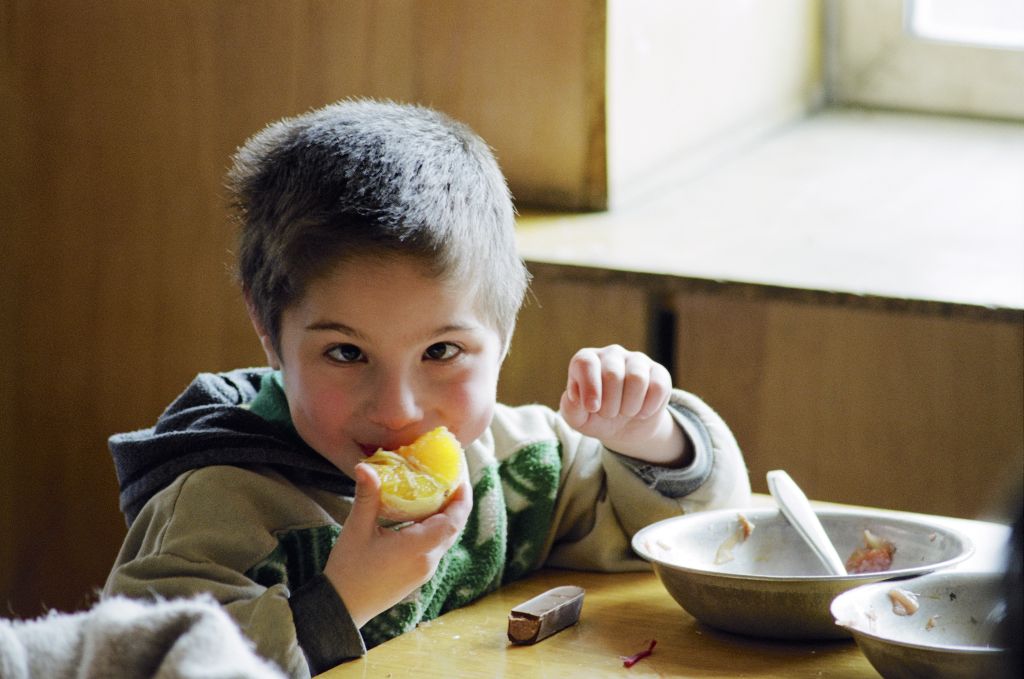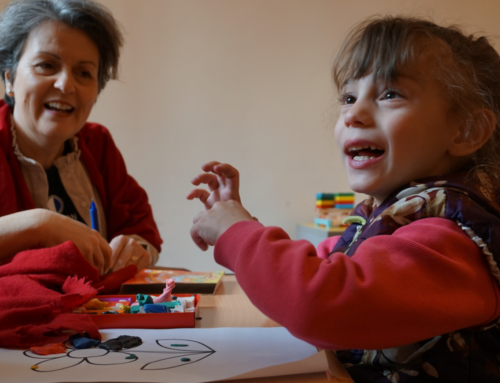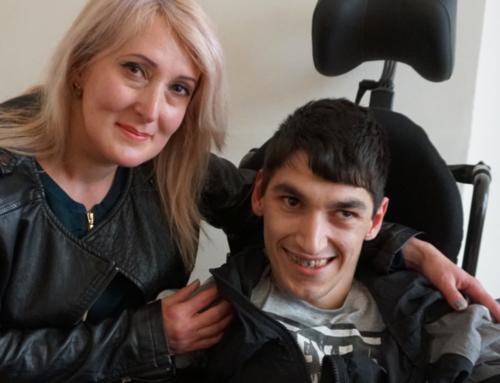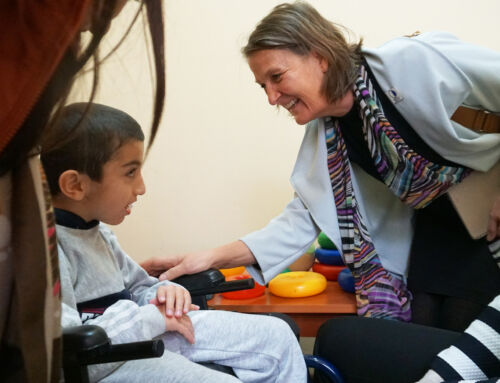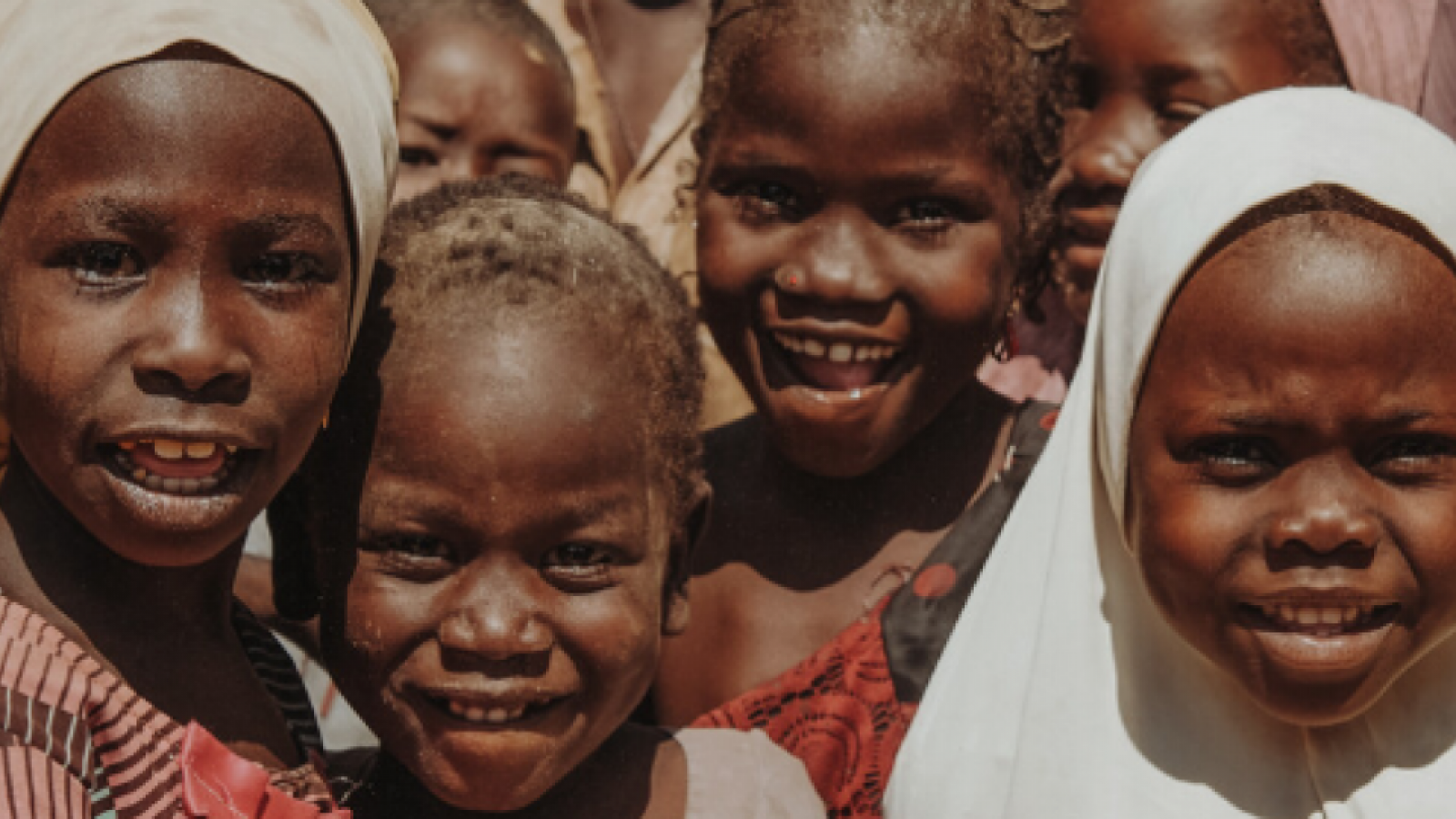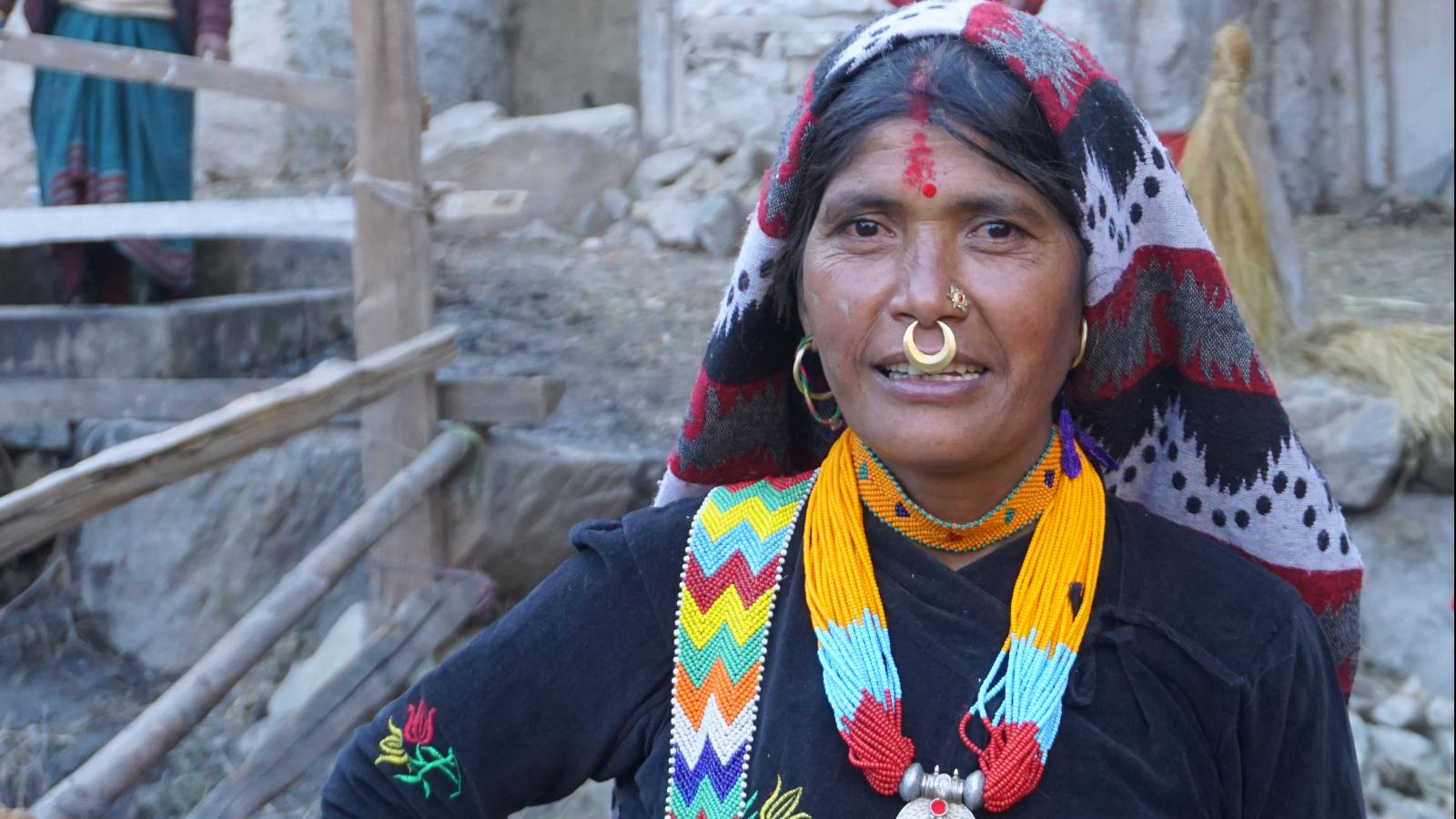During the 1990s, Mission East distributed food and warm clothes to Armenian orphanages, including Nubarashen 11. But the Soviet attitude towards disability made lives at the orphanages miserable. Jane and Dennis Loze decided to change that.By Line Højland, Communications Officer
On a freezing cold Saturday morning in 1998, Dennis and Jane Loze visited Nubarashen 11 – an orphanage for children with ’mental problems’ on the outskirts of the Armenian capital Yerevan. Later, Dennis described the visit in his autobiography:
“As we entered the building, the coldness just hit you. It wasn’t just the temperature that was cold, the whole building was so severe and bare and so quiet, were there any children? We walked down along a stone corridor and through double doors into a large room with long tables and benches, sat on these benches were children aged from 7 to mid/late teens, approx. 150 in total. Everything was so quiet, not a whisper, walking between the tables were 4-5 adults wrapped up against the cold who seemed to be warders or even prison guards, again no smiles. We had brought peroskies, which were meat or potatoes in a pastry, a typical Armenian food, apples and what fruit we could find. The children ate so fast and all the crumbs were not missed, but again in total silence as the ‘guards’ looked on.”
A life without laughter
Dennis Loze used to work as a physiotherapist for several English football clubs, including Arsenal. During a trip to Armenia with some English football players who wanted to teach the sport to local refugee children, he felt compelled to return to the country and stay there for an extended period. Dennis got a job as a physiotherapist with the Armenian Football Association, and a couple of months later he returned with his wife Jane and their 12-year old daughter, Morgana.
During their stay, they got in touch with a group of Red Cross volunteers. Together with them, they paid their first visit to Nubarashen 11. For years, Mission East and other organisations had sent food and winter clothes to the orphanage, but the needs were still considerable. As Dennis and Jane Loze felt this winter’s morning, it was more than just food and clothes that were lacking. These children had an overwhelming need to be seen – to be allowed to laugh and play and be stimulated, as children do in order to grow up and become well-functioning human beings.
How could they help the children?
Saturday after Saturday, Dennis and Jane visited the orphanage, and their visits became the highlight of the week – for them and the children as well. Not only were the children happy to eat a varied food, they were ecstatic that adults were showing an interest in them. Dennis and Jane began to become emotionally involved in the children. They continued working during the week, but their thoughts were constantly with the children, and they wondered how they could spend more time at Nubarashen 11? The transport issue and the difficult Armenian language were both insurmountable obstacles.
The solution presented itself on a Sunday when Jane met Peter and Jikke Drummond-Smith in a Christian group organised through Morgana’s school. Today, Peter is Mission East’s operational director in Brussels, but at the time he was the organisation’s country director for Armenia. Jane told the couple about her experiences at Nubarashen 11. Peter and Jikke were aware of the problems, but had not been able to come up with a solution. To Jane’s surprise and delight they suggested that Jane and Dennis develop a programme for the Nubarashen children. Mission East offered to pay for transport costs and an interpreter.
Punished if they talked
Jane and Dennis began to visit the orphanage three afternoons every week. In the afternoon, the teachers were supposed to help the children do their homework. The reality was different: the children were sitting silently on the floor, and if they dared make a sound, they were hit by older children who were assigned to keep an eye on them. The teachers were drinking coffee in an adjacent room.
Jane and Dennis got acquainted with the subject of play therapy and started to practice it. They moved the children from the stuffy class rooms into the corridors, and when the weather got warmer, they cleared the outdoor areas for cactus plants so the children could play ball games. They painted the walls in bright colours, drew animals on them, and celebrated the children’s birthdays.
“One of the purposes of our therapy programme has been – through play and physical exercise – to give the children joy and increased self-worth, and to teach them to work together. During our time with them we have noticed that they have become more lively, interested and willing to make an effort. They have also learnt some practical skills. They can tell the time, they know their birthday and they can carry out simple tasks, such as tying their shoe laces,” Dennis told the Mission East Magazine at the time.
False diagnoses
Apart from the common activities, they also found out what was wrong with each child. This enabled them to target their tuition better. The result of their survey was a surprise: More than 85 per cent of the children at Nubarashen 11 did not have a mental disability at all. Jane looked up their families to find out what had happened. It turned out that the parents had obtained false diagnoses for their children to get access to the orphanage. The children came from such poor families that their parents could not feed them.
As time went by, Jane and Dennis became increasingly attached to the children who began to open up to them and show their emotions. The staff, however, were very unsatisfied. The work of the couple demonstrated how incapable they were themselves. In particular, the relationship with the director gradually deteriorated, and finally, Jane and Dennis very reluctantly had to stop working at Nubarashen.
Change in legislation
This was not the end of their commitment to children with disabilities in Armenia. They had plenty of experience and data to demonstrate that their work was necessary and useful. They applied to the Armenian Ministry of Education for permission to educate teachers at other Armenian institutions for children with disabilities. It was a long and arduous task to get through to the schools, but during the workshops they noticed how otherwise rigid teachers managed to work together as a group – and they did so with laughter and humour.
Mr and Mrs Loze spent five years in Armenia educating teachers who were working with children with disabilities and learning difficulties. They laid the foundation for the work that Mission East has done since then among people with disabilities in Armenia in cooperation with the local disability organisations Bridge of Hope and Arabkir. Every child in Armenia now has the right to education, and teachers are trained to integrate children with disabilities, including learning difficulties, in their work. Thanks to Jane and Dennis Loze a lot has happened since that Saturday morning in 1998 when the children at Nubarashen 11 were forced to sit in complete silence in a freezing cold hall.
This article is partly based on Dennis Loze’s book ‘Arsenal to Armenia’, Trafford Publishing 2008. The original Danish version of the article was published in a special edition of the Mission East magazine to commemorate the organisation’s 25-year Jubilee in November 2016.
—————————————————————————————————————————————————–
Labelled as defective
In the Soviet Union, persons with disabilities were considered defective. Rather than educating children with special needs on their own terms, they were locked up in institutions like Nubarashen 11. The science on disability was called ‘defectology’, and the attitude was that children with ‘defects’ could never learn anything. Historically, persons with disabilities have also been considered defective in Denmark. Until 1962, it was legal to forcibly sterilize persons with intellectual disability in Denmark.
——————————————————————————————————————————————————
Out of the dark
In Armenia, Mission East cooperates with the local disability organisations, Arabkir and Bridge of Hope. Together, we run several centres for the development and rehabilitation of children with disabilities. The staff visit families in poor villages and find children with disabilities who are hidden from the outside world. They then start treating them and organise support groups for their parents in order to break the taboos. Schools and teacher training colleges focus on the integration of children with disabilities. Moreover, Bridge of Hope has managed to influence changes in Armenian disability legislation.
Many staff members and members of Bridge of Hope have a disability themselves or are the parents of children with disabilities. In 2014, Bridge of Hope received the UNESCO international prize for promoting inclusive education.
——————————————————————————————————————————————————
”We cannot bear injustice any longer!”
Since 2000, 25-year old Arevik has taken part in training and advocacy work organised by Mission East and Bridge of Hope. Now she works for Bridge of Hope. She says about her involvement:
”I have always had this disability, it is part of me just like the colour of my skin. I speak for human rights and dignity together with hundreds of my contemporaries. We cannot bear injustice and inequality any longer. We have to demand our right to education, work and participation in society as equal citizens.”

